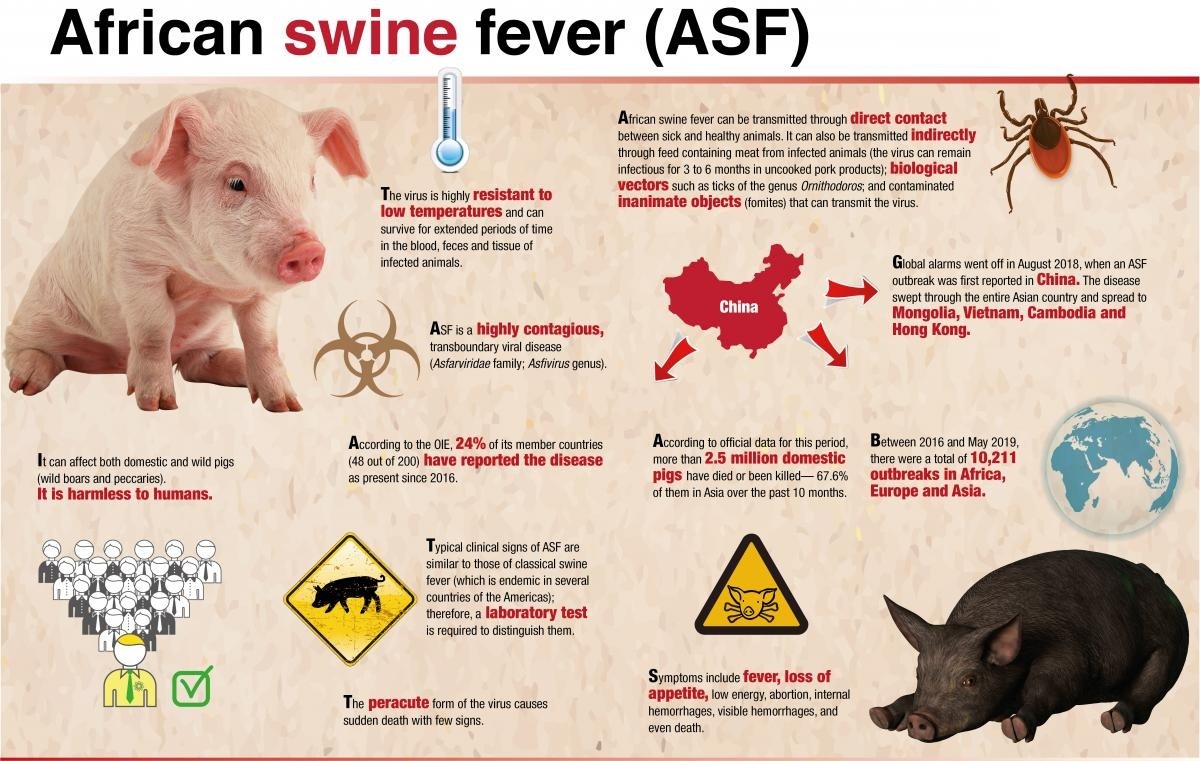Biodiversity & Environment
African Swine Fever in Assam
- 04 May 2020
- 2 min read
Why in News
The Centre has advised the Assam state government to go for culling of pigs affected by the African Swine Fever (ASF).
Key Points
- It has been advised to divide the affected areas into zones and go for culling accordingly.
- The disease was first reported in November-December, 2019 from the areas of China bordering Arunachal Pradesh.
- A few organised piggeries in Assam have been affected and the possible carrier could be humans.
- However, there is no confirmation on humans being the carrier of the virus.
- Earlier in April, there were reported deaths of pigs due to the Classical Swine Fever (CSF).
- ASF and CSF are different from Swine Flu (H1N1) and do not affect humans.
- CSF can be prevented by proper vaccination but there is no vaccination for ASF. Culling of the affected pigs is the only option.
African Swine Fever
- It is a highly contagious and fatal animal disease that infects and leads to an acute form of hemorrhagic fever in domestic and wild pigs.
- It was first detected in Africa in the 1920s.
- The mortality is close to 100% and since the fever has no cure, the only way to stop its spread is by culling the animals.
- ASF is not a threat to human beings since it only spreads from animals to other animals.
- ASF is a disease listed in the World Organisation for Animal Health (OIE) Terrestrial Animal Health Code and thus, reported to the OIE.
World Organisation for Animal Health
- OIE is an intergovernmental organisation responsible for improving animal health worldwide.
- In 2018, it had a total of 182 Member Countries. India is one of the member countries.
- OIE standards are recognised by the World Trade Organization as reference international sanitary rules.
- It is headquartered in Paris, France.





